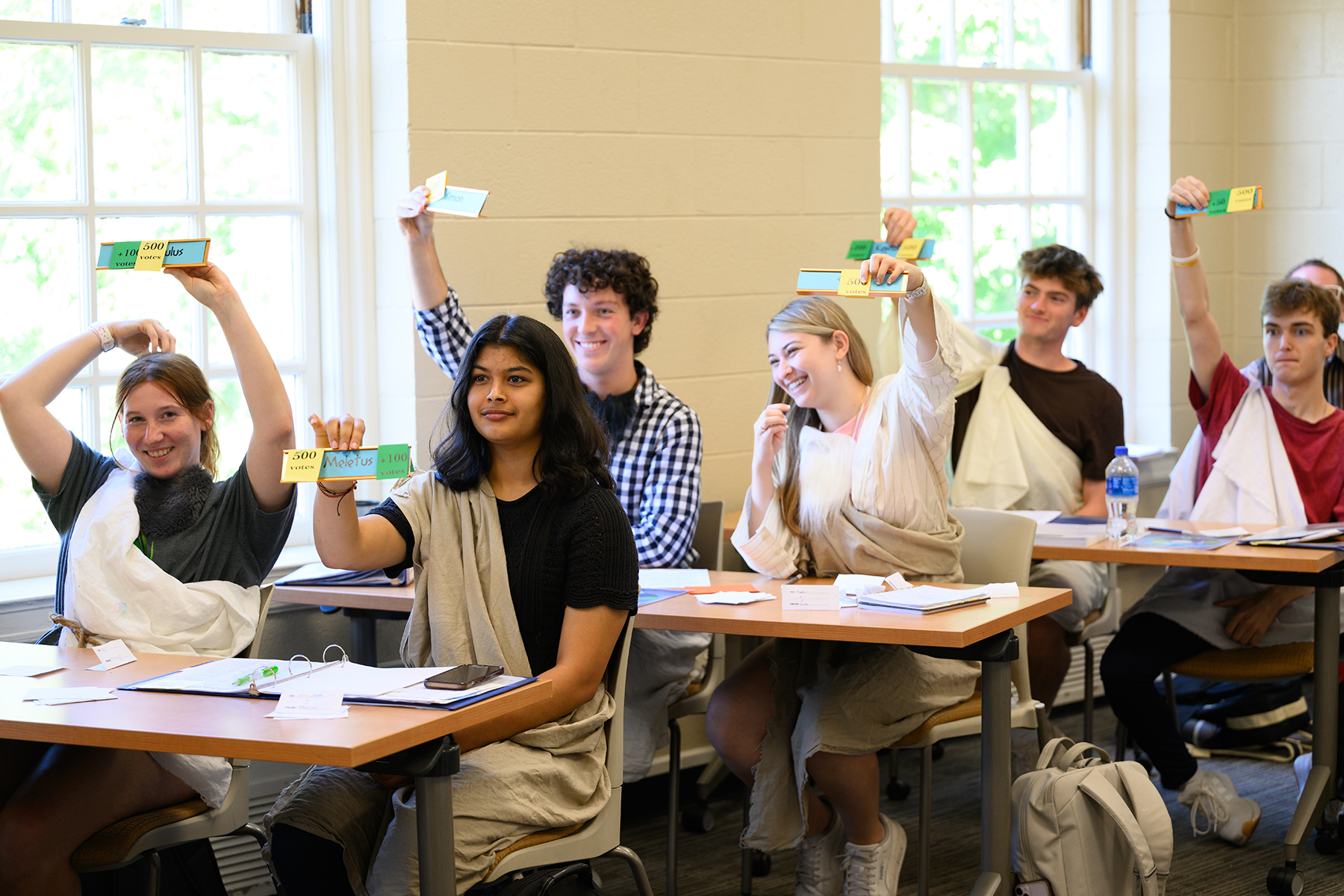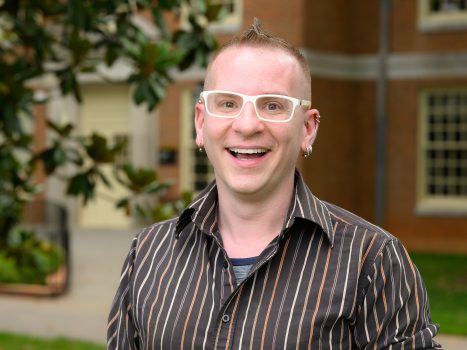Ancient Greek role-play revives political debate
Classics class immerses students in politics then and now

Classics professor T. H. M. Gellar-Goad sets out name plates assigning roles to the students in his first-year seminar class. As they enter the classroom, they don chitons, the standard clothing worn by ancient Athenians. Some add fake beards.
As citizens of Greece in 403 BCE, the students are arguing whether Athens should expand voting rights. On other days, they have debated funding for social welfare and military investment.
First-year student Ojasvi Deep says the discussions have expanded how she thinks about the upcoming 2024 U.S. presidential election.
“The role-playing game helped me understand how democracy depended on active participation, debate and compromise, much like modern policy discussions. This experience has reinforced the importance of voting and political engagement today, as every individual contribution can shape broader societal outcomes,” said Deep. “I will be voting in the upcoming election, knowing how important it is to participate in the democratic process.”
The seminar, “Beware the Ides, Beware the Hemlock: Roleplaying Crisis in Ancient Greece & Rome,” immerses students in the Greek and Roman worlds. The course uses “Reacting to the Past,” a teaching method that immerses students in historical events through role-playing.
The students prepare for their roles by reading and researching “like hunters, rather than gatherers,” Gellar-Goad said. They build a deep knowledge of the issues and their character. There are no scripts.

In the “course magazine” Gellar-Goad has written and shared with his class in lieu of a syllabus, he explains that this approach to teaching draws students into the past, promotes engagement with big ideas, and improves intellectual and academic skills.
The seminar is also designed to challenge students to consider a variety of ethical issues and explore ways of disagreeing and addressing conflict.
“During the games, the students address questions of democracy and representation and learn how to navigate political conflict,” said Gellar-Goad. “It’s low stakes. When they are debating, they speak as if they are someone else. They can ascribe something they disagree with to their character. It is a great way to practice public speaking, but they need a deep character knowledge to succeed.”
Deep said she noticed connections to voting issues in the U.S. where, despite broader voting rights for all citizens over 18, some still face barriers to participation. “While the American system has made efforts toward inclusivity, the ongoing debates about access to voting and citizenship rights show that the struggle for equality continues in both contexts.”
As students assume the roles of historical figures, factions or groups, they engage in debates, negotiations and decision-making processes. This hands-on approach helps them to understand the historical context in a meaningful way.
“We’re no longer just reading from a textbook and being quizzed on a sequence of events. By taking on roles and objectives and discovering others’ motivations, we are exploring nuances in a way that feels real to us,” said Thomas Raiford, whose character was modeled on the ancient Greek sophist Gorgias. “By researching and questioning the role I had been given, I found complexities that were both challenging and exciting to expand on. That’s not something that happens in a normal class often.”
Catherine McLaughlin signed up for the seminar on advice from her sister Lilli, a Wake Forest junior. “My sister convinced me to take the class by telling me how it made her more confident in public speaking. This class is the perfect environment to overcome this fear.”



